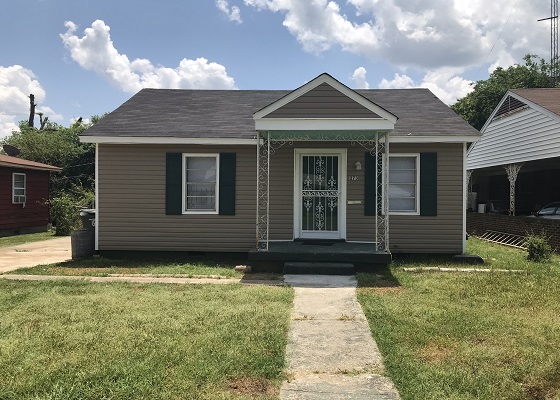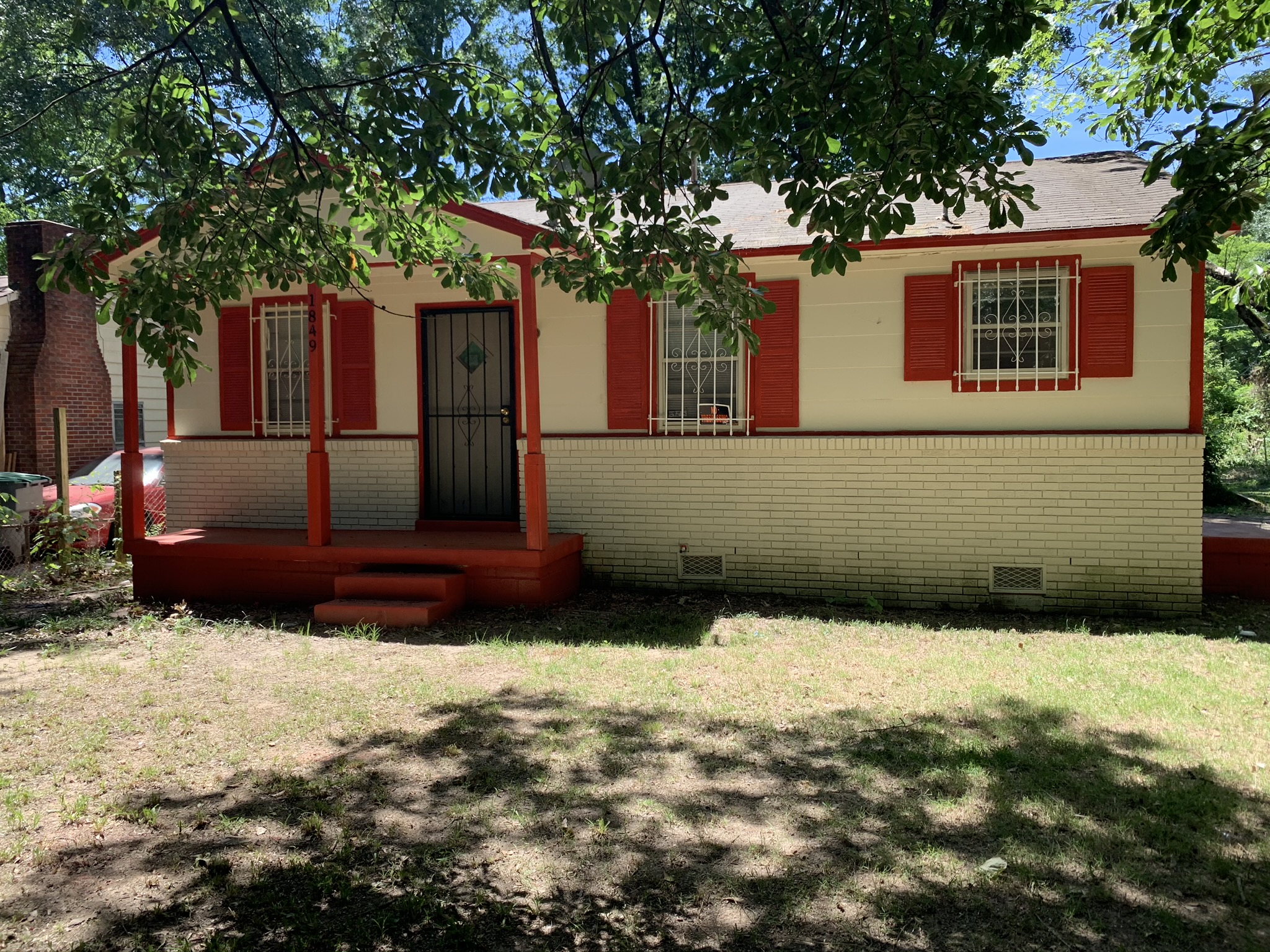
Introductions
In the realm of real estate investment, seeking opportunities that not only generate passive income but also make a positive impact on communities is a goal many investors aspire to achieve. One such avenue gaining traction is investing in special needs housing. This article delves into the concept of passive income through special needs housing, exploring its potential benefits, challenges, and providing a roadmap for investors looking to make a difference while securing their financial future.
Financial benefits
There are numerous financial benefits associated with passive income and owning a rental property. One of the main advantages is the potential to generate a steady stream of income without actively working for it. Passive income, such as rental income, provides a consistent cash flow that can supplement one’s primary source of earnings.
Moreover, investing in real estate offers several tax advantages that can significantly reduce tax liability and potentially save money through capital gains tax. For instance, rental property owners can deduct various expenses when filing their taxes, such as interest on mortgage payments, property taxes, insurance premiums, repairs, and even travel expenses related to managing the property.
Additionally, depreciation can be claimed as an expense, which allows investors to offset rental income and reduce their taxable income further. This depreciation expense can provide significant tax benefits over the long term as the property gradually depreciates in value.
Furthermore, owning a rental property can be beneficial for veterans who receive VA benefits income. However, there are specific verification requirements that must be met to prove the rental income’s legitimacy. These requirements often include providing lease agreements, rental property records, and proof of rental income deposits.
Definition of passive rental income
Passive rental income refers to the money earned from renting out property or other assets without actively participating in day-to-day management or operation. This type of income is generated through lease agreements, where landlords receive regular payments from tenants in exchange for the use of their property. Unlike earned income from a job or business, passive rental income requires minimal effort once the initial setup and proper tenant screening processes are completed. This can provide individuals with a steady stream of income that is not reliant on their active involvement or time commitment. Passive rental income is often associated with real estate investments, such as owning and renting out residential or commercial properties. It offers a means of diversifying one’s income portfolio, building wealth, and creating a source of passive cash flow. Additionally, the potential tax advantages, equity appreciation, and potential for long-term wealth accumulation make passive rental income an attractive option for many investors. The most popular type of property for real estate investors is single-family homes and condos.
Overview of special needs housing
Special needs housing refers to residential options specifically designed to meet the unique needs of individuals with disabilities. Key features of special needs housing include accessibility modifications, support services, and a community tailored towards promoting independence and inclusion.
There are different types of housing options available for individuals with special needs. Subsidized housing programs such as the Section 8 vouchers provide rental assistance for eligible low-income individuals with disabilities. These vouchers allow individuals to choose their own housing while receiving a portion of the rent paid by the government.
Other options include group homes, where individuals with similar needs live together and receive support services, and supportive housing, which combines affordable housing with on-site support services to help individuals with disabilities maintain stable housing.
Despite the availability of these housing options, individuals with disabilities and their families face several challenges and limitations in accessing affordable housing. Limited availability of accessible housing, high housing costs, lengthy waiting lists, discrimination, and lack of resources for housing modifications are some of the barriers faced by this population. Additionally, individuals with disabilities may face challenges in finding suitable housing that meets their unique needs, such as wheelchair accessibility or proximity to medical facilities.
In conclusion, special needs housing addresses the specific requirements of individuals with disabilities. While options like subsidized housing and Section 8 vouchers exist, there are numerous challenges and limitations that hinder the accessibility of affordable housing for individuals with disabilities and their families.
Benefits of Special Needs Housing and Passive Rental Income
Special needs housing provides a unique opportunity for individuals with disabilities to live in a supportive and inclusive environment that meets their specific needs. This type of housing offers numerous benefits, such as improved independence, access to specialized care, and a sense of belonging within a community. Additionally, investing in special needs housing can also provide a passive rental income, allowing individuals and organizations to generate financial returns while positively impacting the lives of those in need. In this article, we will explore the benefits of special needs housing and the potential for passive rental income, highlighting how this form of investment can create a win-win situation for both investors and individuals with disabilities.
When you research and understand the market in your area, you can find the right opportunities for real estate investment and build a passive income stream.
By starting with a cheap property, you can dip your toe into developing low-income housing while potentially taking on less risk. Learn About LIHTC, Section 8 And HAP. You need to familiarize yourself with different government incentives for affordable housing and its development.
Tax benefits
One of the greatest advantages of owning a rental property is the array of tax benefits that come along with it. Property ownership offers various tax advantages that can greatly reduce tax liability and potentially save money.
Firstly, rental property owners are entitled to deduct various expenses associated with their property. Interest on the mortgage, property taxes, insurance, and even depreciation are all deductible expenses. Deducting mortgage interest alone can have a significant impact on lowering tax liability.
Additionally, rental property owners can deduct expenses related to the operation and maintenance of the property. This includes costs for travel to and from the property for property management purposes, repairs and maintenance expenses, and other necessary expenditures.
Furthermore, capital gains tax is another aspect where rental property owners can benefit. If a property is sold for a profit after being held for more than a year, the owner can take advantage of the favorable long-term capital gains tax rates. This allows for potential tax savings compared to ordinary income tax rates.
Overall, owning a rental property offers numerous tax advantages by allowing deductions for various expenses, such as mortgage interest, and potentially reducing tax liability. Moreover, the potential for capital gains tax savings upon sale further adds to the benefits of property ownership.
Comparing passive vs non passive rental income and the activities involved, is an important step for potential real estate investors.
The latest details about the IRS’s requirements and current mileage allowance are in IRS Publication 463.17 In addition to mortgage interest, repairs, and depreciation, some other common expenses you can deduct include: Advertising Employees and independent contractors Home office expenses Insurance premiums Lawn care Losses from casualties (hurricane, earthquake, flood, etc.) or thefts Professional services (e.g., accountants, tax preparers, property managers, attorneys) Utilities The cost of personal property (e.g., appliances and furniture) used in rental activity1 IRS regulation may vary based on different specific situations, but there are general expenses often not allowed to be deducted.
Corporations subject to the passive activity rules must use Form 8810, Corporate Passive Activity Loss and Credit Limitations. Form 8582 is filed by individuals, estates, and trusts who have passive activity deductions (including prior year unallowed losses).
Social benefits

Passive income and rental property ownership offer numerous social benefits that can positively impact individuals and communities. Firstly, passive income from rental properties can provide financial stability and independence for property owners. This stability allows individuals to have a secure source of income, reducing the risk of poverty and promoting a higher standard of living.
Rental property ownership also contributes to the development and growth of communities. By offering affordable and quality housing options, property owners can provide individuals or families with a safe place to live. This ensures that communities are diverse, socially integrated, and economically strong.
Moreover, rental income often leads to entrepreneurship and job creation. As property owners generate passive income, they can reinvest this money in other ventures, such as starting a small business or creating job opportunities for others. This can stimulate economic growth and contribute to the overall prosperity of the community.
Additionally, owning rental properties can provide tax advantages that incentivize property ownership and maintain the availability of affordable housing options. Property owners can deduct expenses such as interest, depreciation, travel, and repairs, reducing their taxable income. These tax benefits not only support property owners but also encourage the maintenance and improvement of rental properties, ensuring their long-term viability and desirability.
Lastly, Social Security income can play a vital role in qualifying for loans to purchase rental properties. Lenders often consider Social Security income as a stable source of income, increasing the chances of loan approval. This enables individuals who rely on Social Security income to invest in rental properties and generate additional income, ultimately improving their financial standing.
In summary, passive income and rental property ownership offer social benefits by providing financial stability, promoting community development, stimulating entrepreneurship and job creation, offering tax advantages, and utilizing Social Security income for loan qualification purposes. These benefits contribute to the overall well-being of individuals and communities, fostering economic growth, stability, and inclusivity.
Qualifying for Special Needs Housing and Passive Rental Income
Qualifying for special needs housing can provide individuals with disabilities the opportunity to access safe and affordable housing options that are specifically tailored to meet their unique needs. These specialized housing programs aim to ensure that individuals with disabilities have access to the resources and support necessary to lead fulfilling and independent lives. In order to qualify for special needs housing, individuals must navigate a variety of criteria and requirements. This includes demonstrating eligibility based on disability status, income limitations, and complying with specific program regulations. The process can be complex, but the rewards are significant, as special needs housing can offer individuals with disabilities a sense of stability, community, and empowerment.
Passive rental income refers to the revenue earned from real estate properties or other assets that require minimal active involvement from the owner. This form of income can provide individuals with a consistent and stable source of revenue without the need for active management or substantial time commitments. Passive rental income can be derived from residential or commercial properties, as well as from assets such as stocks, bonds, or intellectual property. This income stream can offer financial freedom, diversification of income sources, and the potential for long-term wealth accumulation. However, it is important to note that while passive rental income can provide a steady cash flow, it still requires initial investments, proper management, and ongoing monitoring to ensure profitability and compliance with legal requirements.
Here’s how it stacks up against stocks and bonds, and why you should start investing. Read More What Is Passive Real Estate Investing And How Does It Work? Mortgage Basics – 5-minute read Carla Ayers – April 01, 2023 Want to invest in property?
Single-family homes
Investing in single-family homes as opposed to other types of properties offers several benefits and considerations. Firstly, single-family homes tend to have a more stable market demand, making them a reliable investment option. With a growing population and an increasing number of new households being formed every year, the demand for single-family homes remains strong.
Moreover, single-family homes are easier to manage compared to other types of properties. Tenants are responsible for day-to-day maintenance tasks, reducing the landlord’s involvement and overall management burden. This saves both time and money, as landlords do not have to allocate resources for regular upkeep.
Another advantage of single-family units is that tenants are more likely to take good care of the property. Since they are solely responsible for the maintenance, they have a personal investment in keeping the house in proper condition. This can result in a higher long-term occupancy rate and reduced turnover, leading to consistent rental income.
However, it’s crucial to consider the risk of zero income during vacancies. Whenever a tenant moves out, it may take some time to find a new occupant, causing a temporary loss of rental income. Therefore, having a backup plan or sufficient savings to cover expenses during vacancies is crucial for single-family home investors.
In conclusion, investing in single-family homes can be a lucrative choice due to stable market demand, easier management, and the potential for longer-term tenancy. However, landlords must also be prepared for the risk of zero income during vacancies. Overall, considering the benefits and considerations, investing in single-family homes can be a profitable venture.
Thirty percent of that additional passive rental income plus other monthly income would be the tenant’s monthly rent.
Being a landlord is anything but “passive.” A lot of first-time investors think owning a rental is a simple, easy way to add to their monthly income. It can be if done correctly.
A real estate professional is considered non passive if the following three requirements of material participation are met: 50% of services are performed in real property trades or businesses over the duration of a year. 750+ hours of service in real property business Participates materially in real estate activity With these material participation requirements in mind, investors can clearly distinguish between passive and non passive rental income.
Conclusion
Overall, Accessory Dwelling Units (ADUs) offer numerous benefits for property owners and renters alike. Not only do they provide a source of rental income, but they also add value to properties. The flexibility and affordability of ADUs make them an attractive housing option for all parties involved.
One of the primary advantages of ADUs is the potential rental income they generate. With the rising cost of housing, many individuals are looking for affordable housing options, and ADUs offer just that. By renting out the ADU, property owners can supplement their income and potentially pay off their mortgage more quickly.
Furthermore, ADUs add value to properties. By adding an ADU, property owners increase the overall square footage and potential rental income of their property, making it more desirable to potential buyers. This can result in a higher property value and return on investment.
ADUs also offer flexibility as a housing option. They can serve as a space for aging parents or adult children, providing them with privacy and independence while still being close to family. Additionally, ADUs can be utilized as a home office, studio, or guest house, offering a versatile space that can easily adapt to changing needs.
Lastly, ADUs are often more affordable than traditional housing options. By utilizing unused space such as a basement or garage, property owners can avoid the costs associated with a full construction project. This affordability factor benefits both property owners and renters, allowing for more accessible and cost-effective housing options in the market.
In conclusion, Accessory Dwelling Units offer numerous benefits such as generating rental income, adding value to properties, flexibility, and affordability. As the demand for affordable housing increases, ADUs prove to be a practical and attractive housing option for both property owners and renters alike.
For more information regarding: Passive Rental Income Through Special Needs Housing, Check out the Free Workshop at Our YouTube Channel
Your rental property can also decline in market value due to an overall decline in the real estate market—known as economic depreciation.


